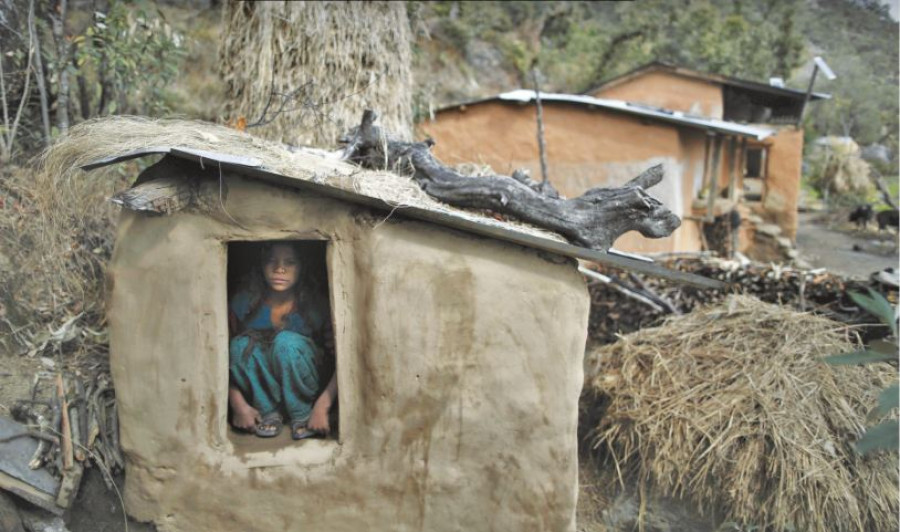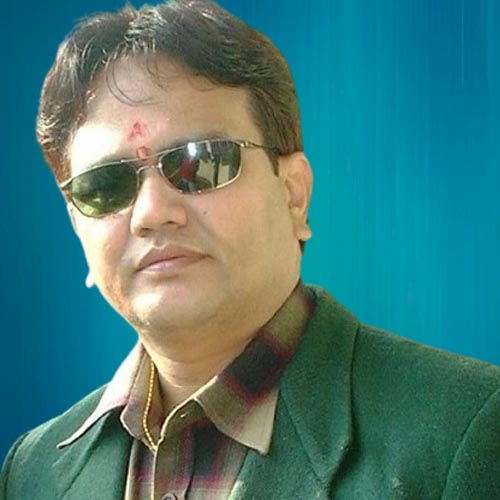Fiction Park
A death in the hut
In a conflict over an age-old tradition in Majhkot, nobody wins.
LB Thapa
About two decades ago, Rudra used to be a porter. Then one day a group of German trekkers felt pity for him and took him with them to Germany where he worked in a bakery shop for ten years. He wanted to stay for a few more years in Germany, but the untimely death of his 17-year-old daughter and eight-year-old son forced him to return to his village.
The bodies of Junkiri and her brother Subhod were found at a hut near the house. Junkiri was on her period and staying in isolation in the hut. Her mother forced her to stay away in a makeshift hut for about 15 days.
Subhod, Junkiri’s younger brother, was much closer to his sister and therefore he would spend much of his time with her. When his sister was separated from him, Subhod would always protest and ask his mother to bring her back home, or he would go to the hut and stay with her.
In fact, Subhod had been reprimanded and even beaten by his mother for meeting or touching his sister while she was in isolation. However, deceiving his mother, Subodh would always visit his sister and play together in the hut. One early morning, Subhod got up from his bed and went straight to meet his sister in the hut.
When he reached the hut, Junkiri was still in bed. He called her several times and even shook her violently but there was no response. Perplexed and scared, Subhod dragged the pillow to comfort his sister. But to his surprise, a fearsome cobra had hidden under the pillow. Before Subhod could react, it was too late. The cobra bit his hand with lightning speed, slithered across the bed and coiled right at the door of the hut. Out of fear, Subhod held his dead sister and began to cry. The cobra, still at the door, raised his hood and hissed in anger.
Subhod was extremely scared but he could not dare to go near the door where the cobra was still sitting with his hood high. Subhod was trapped. After a few minutes, the neurotoxin poison began to affect Subhod’s nervous system and soon he fell unconscious beside his sister. By the time Subhod’s mother found him, he was already dead and so was his sister Junkiri.
Traumatised Rudra and his wife decided to leave the village for Kathmandu. Rudra started his bakery shop and the business was doing well. Rudra and his wife had no intention of going back to his village again. Rudra openly criticised the Chhaupadi tradition that took the lives of his only daughter and son. However, instead of showing sympathy for Rudra and his family, the village elderly scolded him for criticising the age-old practice.
The local people of Majhkot strongly believe in the traditional practice of Chhaupadi and they are least tolerant of the people who try to go against the tradition.
Now Rudra and his wife did not have any kids. That’s why they convinced Rudra’s elder brother who was living in the village to send his daughter Lurimaya to Kathmandu. Luri was more than happy living with her uncle’s family in Kathmandu. Rudra and his wife showered unconditional love upon Luri.
Luri worked hard and finally, she completed her Master’s degree in Law. Luri decided to work under a senior lawyer before starting her own firm. Rudra and his wife welcomed her decision.
There was a meeting to be held in Majhkot village. Many villagers had already gathered to discuss the matter of Khushiman and his daughter Junimaya. Khushiman was accused of not enforcing the age-old tradition of Chhaupadi upon his daughter. There were many eyewitnesses in the village to confirm that Junimaya did not abide by the Chhaupadi tradition. She was seen staying with her family even during her menstruation.
“At first, we issued a warning against you,” said Jagate, the head of the village committee. “We thought you would mend your ways and enforce our age-old tradition. But according to eyewitnesses, your daughter has not been following the tradition.”
Khusiman told Jagate that he had explained it before but would repeat that his family had spent a good deal of time in India where he was serving in the Indian army. “My wife and daughter lived in a city where the lifestyle was different from yours,” Khusiman said. “It will take some time for them to get used to the way of life in the village. I can’t force them to follow this tradition. On top of that, let me remind you that the government of Nepal has banned Chhaupadi tradition. Thus, you can’t force anyone to follow such a tradition.”
Jagate was angry.
“Who are you to teach us about our tradition and who the hell is this government to take a decision on our traditional practice?” he said. “Such practices have been handed down by our ancestors since time immemorial. You talk about a government that is being run by a bunch of people in the capital. What do they know about the plight of the people living in many remote areas of the country? Have you ever felt the presence of the government in your life or in your village?”
As Jagate fumed, someone in the crowd cried loudly.
“The head of the village committee is right,” the man in the crowd said. “This is our tradition and we have been following this practice for centuries. This man wants to break our tradition. The whole village can’t be subjected to God’s wrath for one person’s stupidity. We need to teach him a good lesson. So that other people would think twice before going against the tradition.”
In the meantime, someone threw a stone at Khushiman. It landed right on his head and in no time a gush of blood began to flow out of his head. Khushiman’s wife and daughter ran to help him. The angry mob did not show an iota of mercy. Instead, the crowd continued pelting stones at Khushiman and his family.
Before Jagate could interfere and stop the crowd, the damage had already been done. Khushiman’s condition was extremely critical. His wife and daughter were also injured but they had not received any stone on their heads.
Khushiman’s wife and daughter begged for help but not a single person from the village was willing to help them. Khushiman kept on bleeding profusely and breathed his last in the lap of his wife. With teary eyes and extreme grief, Meshumaya went to Khalanga, the district headquarters, and filed a case against Jagate and some senior members of the village.
The police arrested Jagate on charge of murder. He was further accused of inciting the mob. Jagate was sent to judicial custody. When Rudra knew about the incident, he advised Luri to meet her father and fight his case in court. Luri agreed.
She went to the District Prison Office in Khalanga and met her father. Jagate was very happy to see his daughter as a lawyer. Jagate, however, refused to defend himself in court.
“I’m solely responsible for Khusiman’s death and not only that, I’m also responsible for the deaths of my brother’s son and daughter,” Jagate said. “Had I not encouraged the people to follow Chhaupadi, all these people would be alive today.”
Jagate went on, “So, my dear daughter, I will be much happier to get punished. Even if you succeed to prove me innocent in court, my conscience will never forgive me. I do not want to carry the guilt of killing many innocent people. Now it is time to repent and get free from the burden of guilt.” By this point, tears had started streaming down Jagate’s eyes. He found himself out of words and walked away limply.
Thapa is a Pokhara-based freelance writer and author.




 11.54°C Kathmandu
11.54°C Kathmandu










